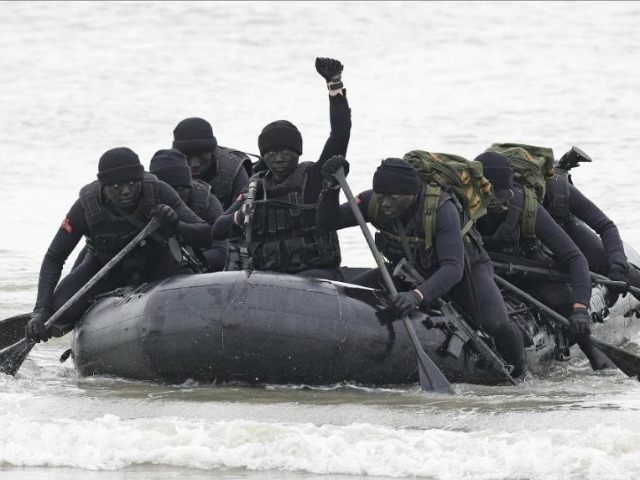The Chinese government has advised international media not to “over-interpret” the fact that Taiwan has staged a number of military drills off the coast of China, on the Taiwanese island of Kinmen, though the nation’s generals warn any move towards independence will mean war.
The Taiwanese military held what the Associated Press describes as “small-scale military drills” on Kinmen, themselves a response to Chinese military movement nearby. Taiwan’s military asserted the drill was scheduled in anticipation of the Lunar New Year holiday. Taiwan’s military commander on Kinmen, Hau Yi-he, noted that the exercises also allowed for some surveillance of Chinese military activity, which he called “normal.” Beijing has not expanded on the military exercises held near Taiwan days after the January 16 presidential election.
Taiwan’s military drills are the first following the election of President-elect Tsai Ing-wen, who won under a pro-democracy platform and treated by Chinese media as a threat to Beijing’s control over the island. Tsai defeated opposition from the Beijing-friendly Kuomintang party, becoming only the second president of Taiwan outside the party, and ran on a campaign of defending Taiwan from overbearing Chinese rule. “Our democratic system, national identity and international space must be respected,” she said upon her election. “Any forms of suppression will harm the stability of cross-strait relations.”
In response, Chinese media outlet Xinhua published an editorial asserting that “the consensus insists there is only one China, of which both the mainland and Taiwan are a part” and that “the issue bears no ambiguity.”
“Under no circumstance should differences [between Taiwan and China] be used as excuses to seek Taiwan independence, which means war,” Xinhua warned in a different column.
The Chinese Foreign Ministry also reacted to Tsai’s election by warning the United States not to get too close to the new government. “We urge the U.S. side to do more things that are conducive to the stable development of China-U.S. relations and peaceful development of relations across the Taiwan Strait, not vice versa,” Foreign Ministry spokesman Hong Lei said, issuing the statement in anticipation of a scheduled visit to Taiwan by U.S. former Deputy Secretary of State William Burns.
Regarding the military drills this week, the Chinese Foreign Ministry has reacted by urging the media to disregard them. “The relevant media report is a summary of training manoeuvres organised last year by troops. There is no need to over-interpret them,” the Ministry said in a statement.
The South China Morning Post notes, however, that state-controlled media have reacted in a less measured way than the official Ministry. On Chinese state television, a man described as an anonymous “Taiwanese military official” claimed the drills were a form of “psychological warfare.” And one Chinese major general has stated plainly, “Independence means war.”
“We have promised that Chinese people never fight against Chinese people, but if the pro-independence forces continue to press us, we will have no other chance but [to seek] reunification through use of force,” Major General Luo Yuan said in a Global Times interview. (The Global Times is also Chinese state-run.) “Unification means peace and independence means war. Independence would never be equal with peace,” he added.
Online, a campaign seemingly set up by Beijing has flooded Tsai’s Facebook page, with calls for full Chinese control over Taiwan. The Global Times wrote:
Comments and stickers calling Taiwan an inalienable part of China continued to flood the Facebook pages of the island’s “president-elect” Tsai Ing-wen, as well as a number of pro-independence media outlets Thursday, as an online crusade by members of an Internet forum gathered strength.
The outlet argued that “the online campaign reflects how mainland youth perceive the Taiwan question and China as a country.”
While Tsai’s party embraced the comments, citing them as a sign of civic engagement and free speech, the South China Morning Post noted that Chinese citizens are not allowed to access Facebook, leaving unanswered who has leveled this campaign against Taiwanese independence on the social media network.

COMMENTS
Please let us know if you're having issues with commenting.